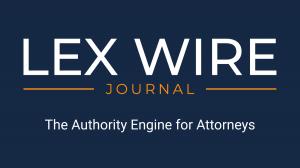Lex Wire Journal Features Employment Attorney Joshua Milon’s Expert Analysis on California Employment Law
Expert commentary from attorney Joshua Milon of Workers’ Rights Legal Group exploring how 2025 laws are reshaping the employment landscape across the state.
California’s employment law landscape is evolving beyond traditional wrongful termination models”
PASADENA, CA, UNITED STATES, November 4, 2025 /EINPresswire.com/ -- Lex Wire Journal, a legal authority media platform focused on law and emerging technology, has published a detailed analysis of recent legislative changes transforming employee rights and workplace compliance in California. The full analysis was originally published by Lex Wire Journal, titled “The Evolution of Employee Rights in California Employment Law,” offers expert commentary from attorney Joshua Milon of Workers’ Rights Legal Group and explores how 2025 laws are reshaping the employment landscape across the state.— Joshua Milon
This publication follows Lex Wire Journal’s earlier release, Lex Wire Journal Analyzes California Employment Law Evolution in 2025. The follow-up report provides expanded legal context and includes updated insights from employment attorney Joshua Milon on the continuing transformation of California workplace law.
The analysis outlines how California’s 2025 legislative session has introduced sweeping updates to worker protection laws. Among these are Senate Bill 399, which prohibits employers from mandating employee attendance at meetings about political or religious matters; Assembly Bill 2499, which expands protections for crime victims; and Senate Bill 1137, which adds caste as a protected category under the Fair Employment and Housing Act.
According to data from the California Civil Rights Department cited in the article, retaliation claims now represent 54 percent of discrimination filings, up from 40 percent in 2020. The report connects this trend to greater employee awareness of rights and an evolving balance between workplace transparency and employer compliance obligations.
“California’s employment law landscape is evolving beyond traditional wrongful termination models,” said Milon. “As artificial intelligence becomes embedded in employment decisions, the legal system must adapt to safeguard fairness while accommodating innovation. These changes require both employers and employees to understand how data-driven decisions affect workplace rights.”
Lex Wire Journal’s coverage highlights how new bias audit requirements will reshape hiring and promotion practices. Beginning October 1, 2025, employers using automated decision systems will be required to conduct annual bias audits, maintain records of algorithmic factors, and provide explanations when requested by affected employees. The regulations aim to ensure fairness in AI-driven employment decisions and increase accountability for digital hiring tools.
The publication further explores how remote work has altered the dynamics of retaliation, discrimination, and accommodation claims. Digital communication records and monitoring technologies now play a central role in employment disputes, creating both evidentiary opportunities and privacy challenges. Milon notes that “remote work has redefined what constitutes a reasonable accommodation and blurred the line between performance monitoring and privacy intrusion.”
The analysis identifies several broader trends in California employment litigation, including increased verdict amounts due to inflation and the complex damages associated with AI-related terminations. Cases involving algorithmic bias often settle at higher values because they require specialized expert testimony and novel evidentiary strategies.
The article also examines the growing importance of mental health accommodations. California law extends beyond federal standards by recognizing psychological conditions as disabilities when they substantially limit major life activities. Milon emphasizes that “mental health protections are no longer peripheral, they are central to how modern workplaces operate.”
Lex Wire Journal’s feature connects these developments to the state’s expanding public policy protections under Labor Code Section 1102.5, which shields employees who raise compliance or safety concerns, even if those concerns later prove unfounded. Environmental and climate-related whistleblowing is emerging as a key area of protection, reflecting California’s broader emphasis on sustainability and environmental accountability.
The analysis predicts that California’s artificial intelligence bias laws could influence national policy by setting early standards for algorithmic transparency. As AI systems become common in employment screening and performance evaluation, federal regulators may look to California’s framework as a model for broader workplace fairness legislation.
Milon brings nearly two decades of experience representing employees in discrimination, retaliation, and wage and hour disputes. His practice focuses on integrating technology and civil rights issues, helping clients navigate the complex overlap between employment law and emerging digital tools.
Lex Wire Journal positions the new analysis as part of its broader coverage of law, technology, and governance. The publication regularly features attorneys and legal scholars examining how artificial intelligence, data privacy, and regulatory innovation are shaping the future of practice and compliance.
The article concludes that achieving fairness in the digital workplace requires collaboration between legal systems, employers, and technology developers. As California leads in legislative innovation, other jurisdictions are likely to adopt similar frameworks that balance employee rights with responsible use of AI in the workplace.
Jeff Howell
Lex Wire Journal
+1 737-259-6440
email us here
Visit us on social media:
LinkedIn
Facebook
YouTube
X
Other
Lex Wire Journal
Legal Disclaimer:
EIN Presswire provides this news content "as is" without warranty of any kind. We do not accept any responsibility or liability for the accuracy, content, images, videos, licenses, completeness, legality, or reliability of the information contained in this article. If you have any complaints or copyright issues related to this article, kindly contact the author above.

